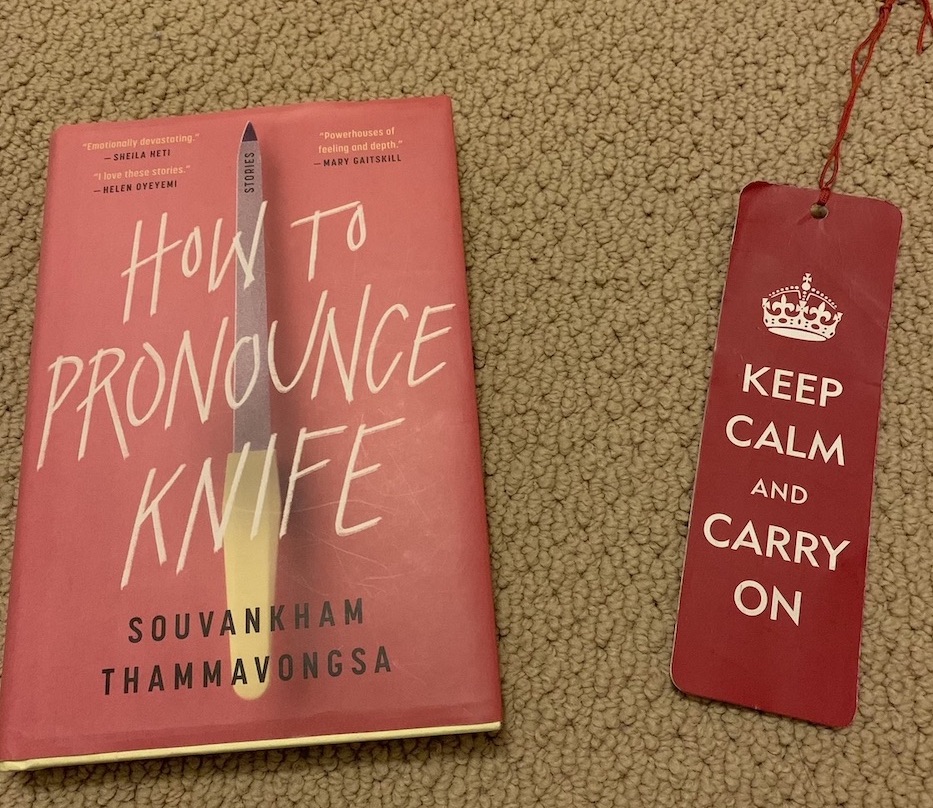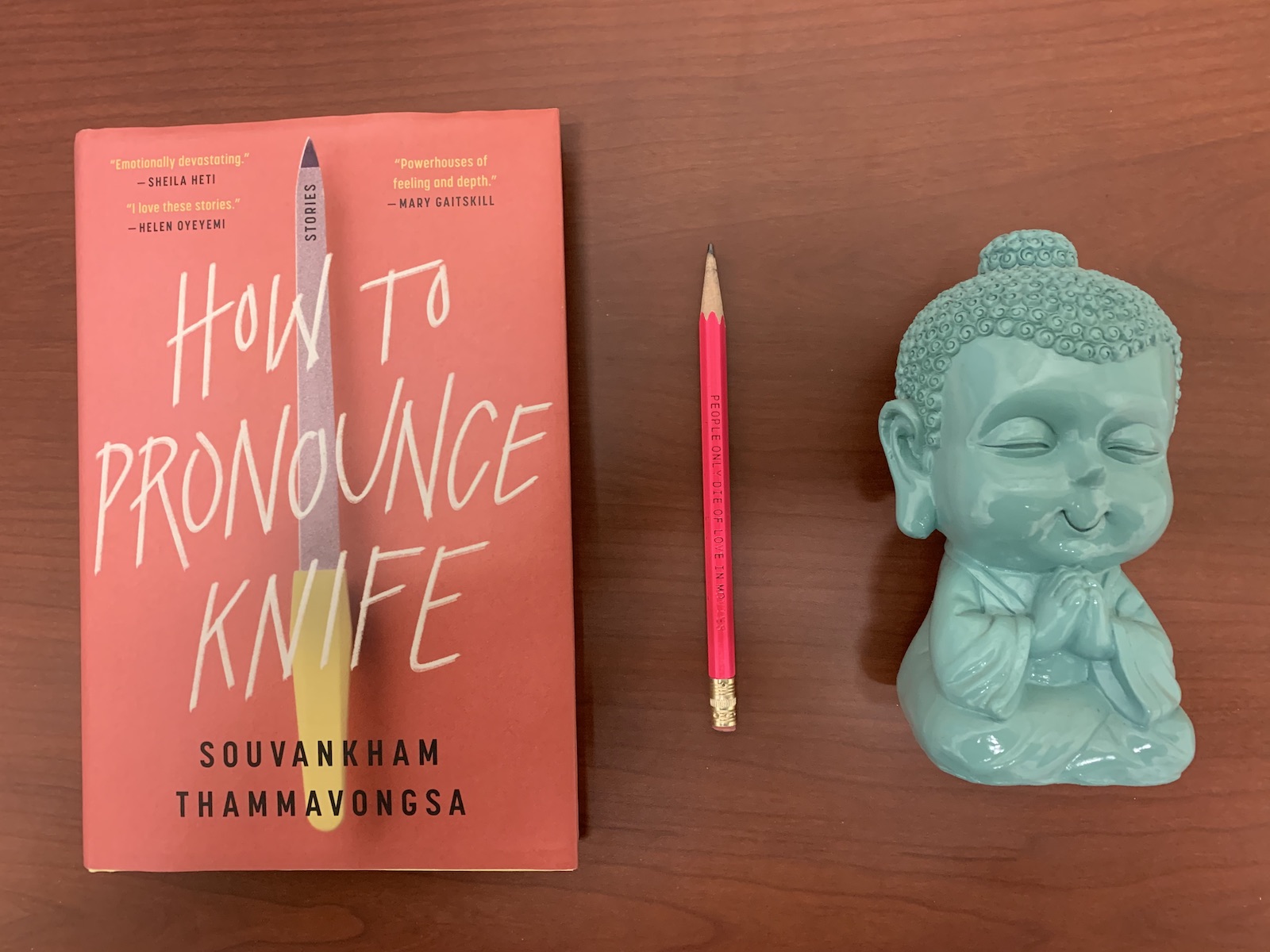Published December 21st, 2020
Review
by Richard M. Cho

An excellent short story collection from the Laotian-Canadian writer Souvankham Thammavongsa, How to Pronounce Knife, is a fitting title for a book by an ESL writer. The mispronunciation of words is the surest way to manifest one’s foreignness. Verbal mishaps happen way too often in English because consonants and vowels do not always follow one rule, but many.
The thirteen stories included in the collection tell the story of Laotian immigrants in a nameless North American city, artfully delving into the spheres of hardships and confusions faced by newcomers who speak the language with an unmistakable accent and cling to their old ways.
Thammavongsa's parents are Laotian, but she was born in a refugee camp in Thailand during the war and immigrated to Canada at an early age. The family spoke Lao at home, and it was the sharp difference between the spoken Lao and English that awakened in her a keen interest in language. Thammavongsa's literary calling found its beginnings in the realm of poetry, of which she published four acclaimed works. Her first prose work, How to Pronounce Knife, received the prestigious Scotiabank Giller Prize in 2020 — previous recipients include literary giants such as Alice Munro and Margaret Atwood — and during the award ceremony speech (held via Zoom due to the pandemic), Thammavongsa confessed that she used to read aloud the word "knife" kah-nnn-eye-ffff.

As a poet, Thammavongsa's writing is spare and exact, distilled to essentials that unsentimentally reveal the core of the story, much akin to Hemingway's minimal style in his short fiction. Her prose might remind readers of Michelangelo's sculptures: every sentence chiseled to perfection, side by side, creating a peerless artwork. Her stories will undoubtedly be analyzed and studied by aspiring writers in the years to come.
In the titled story, a girl is mocked by her classmates when she reads the word "knife" without silencing the "k" in front of the whole class. As it turns out, it was her father who had taught her to pronounce it like that. However, the girl, not wanting to offend her father, doesn't correct him. "As she watches her father eat his dinner, she thinks of what else he doesn't know. What else she would have to find out for herself. She wants to tell her father that some letters, even though they are there, we do not say them, but she decides now is not the time to say such a thing." It is that moment of realization for the girl that, as an immigrant child, she has much to learn on her own. Moments like this, both heartfelt and relatable, populate all her stories...like shining pearls in the ocean that these immigrants had to cross.
In another story titled "Randy Travis," the eponymous country music singer is the object of obsession for a Laotian mother who recently moved to America. Her young daughter narrates the story, emphasizing the naivete of an immigrant family trying to "make it," albeit as strangers in a foreign land. The mother is perennially on the lookout for something that will give meaning to her life: church, Randy Travis, then slot machine. The child says, "I knew my mother was no stranger to hoping; it's how we all ended up here in this country in the first place." In the current world wrought with an immigration crisis, the story reminds the reader that everyone deserves to hope for a better life.

Another story titled "Medi Pedi" transpires a similar sentiment, portraying the lives of two siblings who work in a pedicure salon. The story narrates mundane but meaningful instances such as when the bossy sister notices her brother, who used to be a boxer, repeatedly glancing at one of the posh ladies; she proceeds to remind him of his place as a meager immigrant who must realize it's better to give up unattainable dreams. The brother then replies, "Don't you go reminding me what dreams a man like me ought to have. That I can dream at all means something to me."
In a bookshelf stacked with contemporary western literature, fiction portraying Laotian experiences written originally in English is scarce, making How to Pronounce Knife a welcome addition. Although most characters are from Lao and practice Laotian cultural norms, every reader will feel the affinity to the universal desires and struggles portrayed in these immigrants' stories. They will prompt some laughter as well, as no hardship can be endured without it. As one of Thammavongsa's characters says, "A laugh, in any language, was a laugh."
Nationality: Korean-American
First Language(s): Korean
Second Language(s):
English
Supported by:

